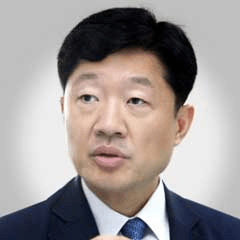Future Korean investment should shift focus from manufacturing to software, bring more SMEs, Startups to India: KOCHAM
About 83.5% of the Korean investment in India is in the manufacturing sector with the biggest chunk in the automobile sector followed by electronics and home appliances. Samsung produces 100 million smartphones in India -one-third of its total global production of 320 million units.
SEOUL: Taehee Woo, the Executive Vice Chairman of the Korea Chamber of Commerce and Industry has said that the Korean companies investing in India should shift their focus from manufacturing to software sectors to enable more and more small and medium enterprises (SMEs) and startups set up their bases here.
He also called upon the Korean and Indians companies to launch joint research in the field of Artificial Intelligence (AI) and Big Data and explore investment opportunities in construction and infrastructure.
“Currently, Korea’s Investment in India is heavily concentrated in the manufacturing sector. About 83.5% of the Korean investment in India is in the manufacturing sector with the biggest chunk in the automobile sector followed by electronics and home appliances. Samsung produces 100 million smartphones in its world’s biggest plant in India, one-third of its total global production of 320 million units. POSCO is joining hand with RINL to set up a steel plant in Vishakhapatnam,” said Taehee Woo, the KOCHAM Executive Vice Chairman in a webinar ‘Leveraging Asian Technology and Innovation to Boost Exports from India to the World” during Asian Leadership Conference organized by South Korea’s well-known media house Chosun-Ilbo on November 11. It was supported by India’s apex industry body Confederation of Indian Industry (CII).
Taehee Woo, though, hinted that the Korean investment pattern was starting to make a significant shift in Indian and was moving from manufacturing to non-manufacturing sectors to pave the way for more investment in India.
Three years back, Korea’s CJ Logistics acquired a major stake in India’s logistic Darcl. It was a turning point. Many construction and infrastructure companies were planning to invest more in India, and it was good news, he disclosed.
“Most of the Korean investment in India is by the big companies, and we have to change this to small and medium companies because big companies make investment usually in hardware, we need to have software cooperation between India and Korea, and for that, we need to have more small and medium economies work together,” said the KOCHAM Executive Vice Chairman.
Taehee Woo suggested that the public funds should be used to assist SMEs and startup companies to start their ventures in India.
 “Many countries worldwide are attempting to revitalize economies by injecting public money to associate construction and digital infrastructure. In Korea, we have programs like ‘Korean New Deal’ Policy and in India besides Make in India, it has programs like ‘Self Reliant India’, which can provide public funds for small and medium companies. I hope this is a very good opportunity for bilateral cooperation to link those economy stimulus programs together to make opportunity for our small and medium companies and startup ventures to work together,” he added.
“Many countries worldwide are attempting to revitalize economies by injecting public money to associate construction and digital infrastructure. In Korea, we have programs like ‘Korean New Deal’ Policy and in India besides Make in India, it has programs like ‘Self Reliant India’, which can provide public funds for small and medium companies. I hope this is a very good opportunity for bilateral cooperation to link those economy stimulus programs together to make opportunity for our small and medium companies and startup ventures to work together,” he added.
With excellent human resources available in India in mind for the software, Woo suggested launching joint research on AI and Big Data with Indian and Korean companies together.
“When PM Modi visited Korea 2015, we had bilateral agreement to have a finance package of one billion US dollars and also export credit of nine billion US dollars to make from the Economic Development Cooperation Fund EDCF. This kind of fund can give an excellent opportunity to our startups and SMEs. Of course, there is some more action to realize this kind of funds but I hope this can be a good start,” said Woo.
The Economic Development Cooperation Fund of Korea, administered by the Export-Import Bank of Korea and the Ministry of Strategy and Finance, provides concessional loans to LDCs to facilitate their industrial development and economic stability
Others who participated in this webinar included Suresh Prabhu, Former Minister of Commerce and Industry of India, Current India’s Sherpa to the G20; Naushad Forbes, Co-chairman of Forbes Marshall, Past President of CII; Shruti Kinra, Partner, Shardul Amarchand Mangaldas & Co.; Deepak Chopra, Group CEO, Anand Group; and Anil Sinha, COO, Tata Daewoo Commercial Vehicle Korea.
About Taehee Woo, Executive Vice Chairman of the Korea Chamber of Commerce and Industry:
Taehee Woo is the former vice minister of the Ministry of Trade, Industry and Energy. He started his civil service career at the Ministry of Commerce and Industry in 1984 and served as a commerce officer at the Consulate General of the Republic of Korea in New York from 2002 to 2005, and as a minister counselor at the Embassy of the Republic of Korea in the United States from 2007 to 2009. Since then, he has been part of the Ministry of Knowledge Economy and the Ministry of Trade, Industry and Energy.



